Friends reunited: How two long-lost wartime schoolmates who fled Nazi Germany spoke again after 80 years
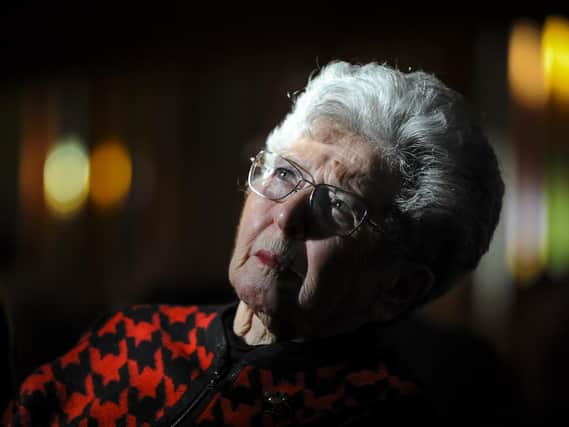

Both born in the former Czechoslovakia, they each left the continent in the lead up to the Second World War with their families, but did so under circumstances which could hardly be more different. Sydney's family moved of their own volition to the west or Ireland, where his polyglot father had been tasked with overseeing the construction of a new hat factory. Milena had to be smuggled to England before the borders closed, saved from the grasp of the Nazis by the legendary Sir Nicholas Winton.
But they both ended up at the same school in rural Wales. And now, after almost 80 years, they've been reunited.
- - -
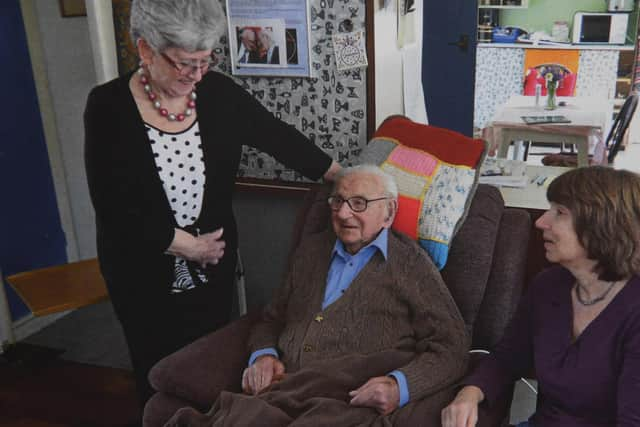

Advertisement
Hide AdAdvertisement
Hide Ad"My father sold the fez to the Egyptians," says Sydney from his home in Dublin. "He worked for years in the hat-making industry in Czechoslovakia and was a great linguist who spoke about eight languages so, when a factory in the west of Ireland was mooted, he was sent there because his English was perfect."
Despite his father's capacity for languages, Sydney didn't actually speak Czech - his mother was Swiss-German and the family had previously resided in the town of Chomutov, which was in Czechoslovakia but part of the Sudetenland and comprising 95% ethnic Germans. So he spoke German.
But the family - whom Sydney says were made to feel 'very welcome' in Castlebar in County Mayo - nevertheless intended to return to Czechoslovakia after the war, making an education in Czech for the young Sydney imperative. So, when they learned of the Czechoslovak State Boarding School in Llanwrtyd Wells, Wales, Sydney was sent on his way.
"I was 11 and was put on a train in Castlebar, got the mail boat to Holyhead, and then travelled down to central Wales," explains Sydney, 90. "You'd be arrested by the police for negligence now if you did that as a parent, but it was a wonderful adventure."
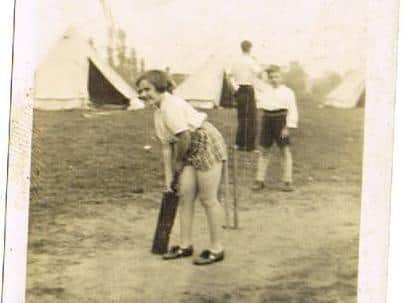

Advertisement
Hide AdAdvertisement
Hide AdThe school was established by the Czech government during the war to provide refugees with an education in their mother tongue. Sydney loved it. "The people were amazing," he says. "But I learned hardly a word of Czech. I remember having a ball, but I was the worst student - academia was never for me."
That's one thing he had in common with a certain Milena Fleischmann.
In 1939 and on the eve of conflict erupting, a nine-year-old Milena and her three-and-a-half-year-old sister Eva boarded a train out of Prague. Theirs was the seventh train of eight organised by Sir Nicholas Winton - eight trains tasked with transporting Czech Jewish refugee children along the now-famous Kindertansport route to safety from the Nazis.
But, before the eighth train could depart, war was declared and the borders were closed. Its 200 passengers were killed along with 16,000 other Czechoslovak children during the war. "My train was the last train," said Milena on the 75th anniversary of the liberation of Auschwitz. "But the real last train, as Sir Nicholas used to say, never left."
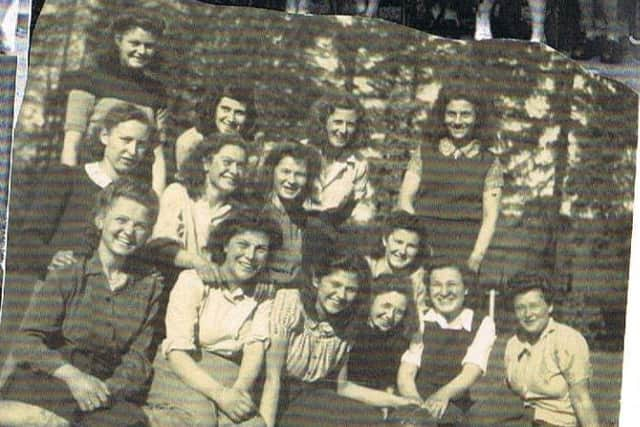

Advertisement
Hide AdAdvertisement
Hide AdHaving fled the continent earlier that year, Milena's father Rudolph - a vocal supporter of the anti-Nazi author Thomas Mann - was waiting for them in Britain. But he was laid low by chest problems and, with their mother unable to join them in the UK until 1940 when she managed to escape Czechoslovakia via Norway, the girls had to live somewhere else.
That somewhere else was with the Radcliffe family in Ashton-under-Lyne in Greater Manchester. The secretary of the local Labour Party, Roland Radcliffe and his wife had answered an advert in the Picture Post appealing for British families to take in Czech refugees, moving their 14-year-old daughter Mary out of their two-bed terraced house to live with a grandmother so as to accommodate Milena and Eva.
Attending a local school during her year with the Radcliffes, Milena started to pick up English, but some old habits die hard. "A teacher once told me off for my continental knitting style," says Milena, who now lives in Preston. "I knew how to knit, but the technique was slightly different and she told me that I had to learn how to knit 'in English'."
As for the rest of her education, however, Rudolph was keen for Milena to continue learning in Czech. And, so, she too found herself at the Czechoslovak State Boarding School in the early '40s.
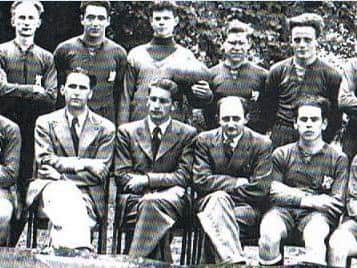

Advertisement
Hide AdAdvertisement
Hide Ad"I was an extremely bad pupil," Milena, 91, says. "I was very good at music, sport, drawing, and arty things, but I was very bad at Latin, physics, chemistry, and maths - I hate maths to this day - and you had to pass every subject. I ended up in the same form for two years because of my maths and Latin, which was a terrible disgrace in those days.
"Our Headmaster was a captain from the Czech army and treated us as if we were in the army ourselves," she adds. "I look back very fondly on my time at the school even though I was a poor pupil - I sang a lot of the solos in the school choir and I played handball and hockey and ran, so I was very fit and sporty."
Milena says it’s hard, however, to forget why the students were at school in rural Wales to begin with.
"I have happy memories of that period because we were away from all the bombing," she explains. "Most of us were unaware of what was going on in Europe and none of us knew what was going on in the concentration camps. Only about half a dozen children had parents in England at that time, so when the rest were repatriated after the war, often they found no family left.
Advertisement
Hide AdAdvertisement
Hide Ad"On top of that, they were resented because antisemitism was still around and people would say 'why are you back?'," she adds. "There were a few very hard and very bad years for people."
- - -
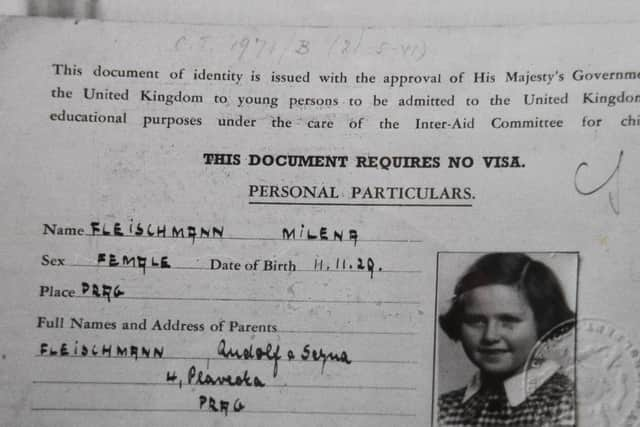

Last month, the Lancashire Post received an email from Sydney. Assuming he was the last surviving former student from the Czechoslovak State Boarding School, he had learned of the now-Lady Milena's existence via the Post and got in touch, expressing his astonishment.
"I more or less assumed that, after 80 years or so, I am the Last of the Mohicans and am glad to note that I am not," he wrote. "This now-Irishman [was] bowled over with the information. I do hope that Lady Milena will not think of me as being totally presumptuous, [but] I would love to say hello to her after all these years and also hope that this message will find Lady Milena healthy and well and, like a good Rolls, still firing on all cylinders."
The Post contacted Lady Milena and the pair organised a time for a chat.
Advertisement
Hide AdAdvertisement
Hide Ad"I was lost for words for the first time in my life when I spoke to Lady Milena; I felt like a schoolboy again," Sydney says of their conversation, with Milena adding: "It was great to speak to Sydney, he's quite an interesting old boy."
Over the intervening eight decades since they left the Czechoslovak State Boarding School, both Sydney and Milena have led extremely fulfilling lives.
After leaving the school at the age of 16, Lady Milena joined her parents in Preston and got a job at a day nursery before going on to work as a nanny for a family near Bradford. Having always loved the sound of French, she put an advert in the French newspaper Le Figaro and got a job as an au pair for two years, picking up the language as she did.
She later met her husband-to-be George Grenfell-Baines back in Preston and the couple married in 1954. George himself came from a very poor background but nevertheless went on to study at Manchester University, becoming an architect, town planner, and professor of architecture at Sheffield University. He was knighted in 1978 and died in 2003 at the age of 95.
Advertisement
Hide AdAdvertisement
Hide AdSydney says that after leaving school he did 'everything'. "It'd be easier to say what I didn't do!" he explains. "I was as happy as a pig in muck - I loved working.
"I always enjoyed a challenge; if you wanted me to start a new company tomorrow, I'd be ready," he adds. "I'm still firing on all cylinders and I've enjoyed absolutely everything I've done. So many people spend their lives being square pegs in round holes but I've had a wonderful life. I've never had what you'd call an unhappy day."
Having sparked up a correspondence, it remains to be seen whether Sydney and Milena will be able to meet in person and bring their extraordinary eight-decade story full-circle. But - pandemic-permitting - both say they are willing and keen. Who knows what 2021 holds.